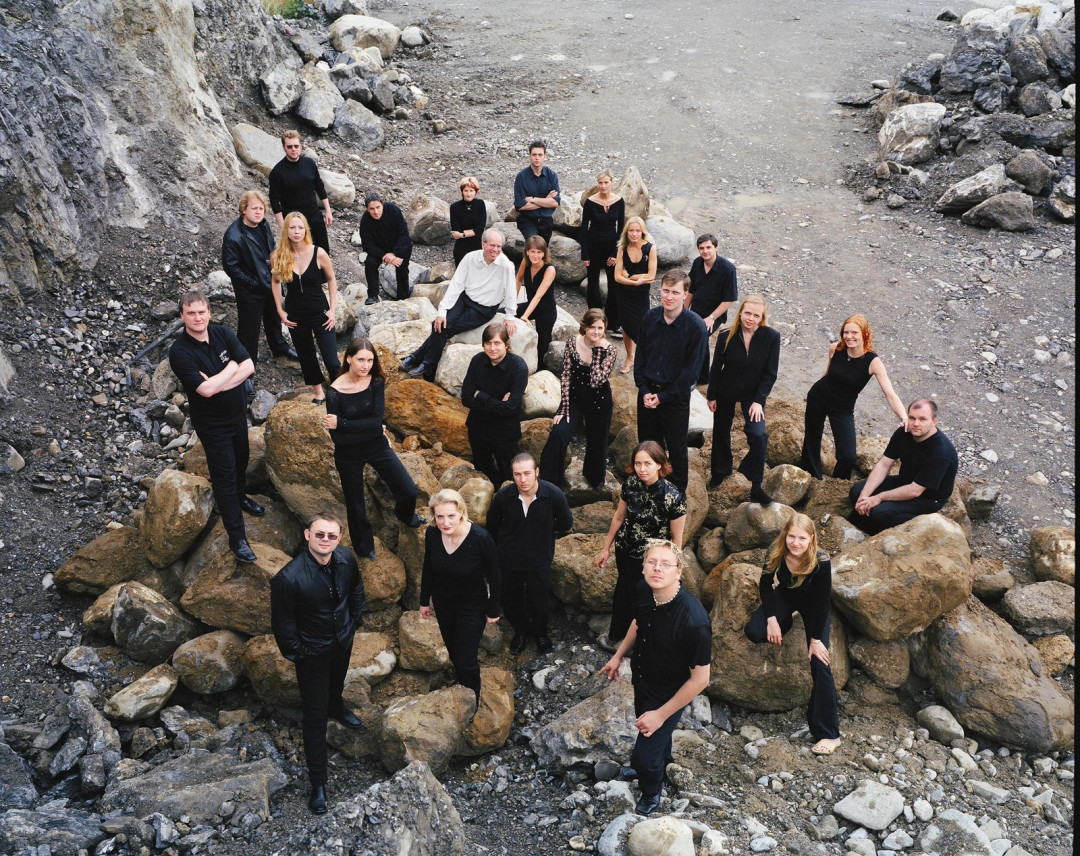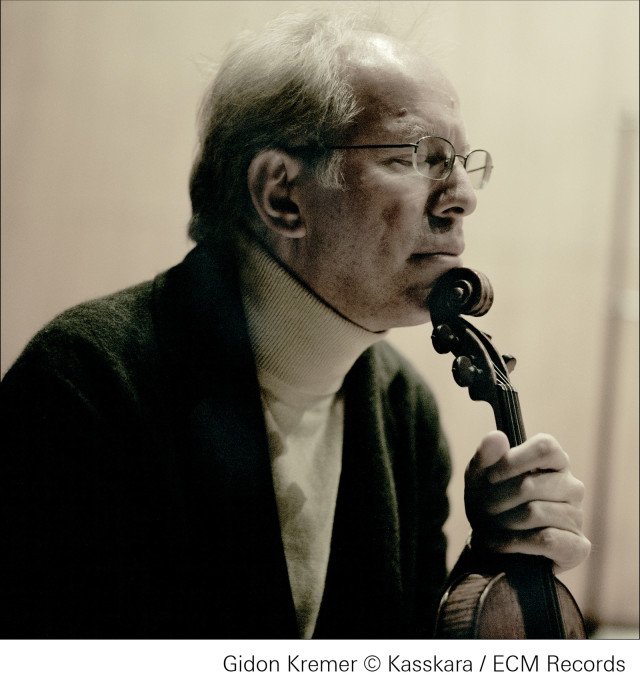Violinist Gidon Kremer Brings Eastern Europe to Houston

Kremerata Baltica
Kremerata Baltica
Feb 4 at 7:30
$20–75; seniors $30; students $20
Stude Concert Hall, Shepherd School of Music
Rice University
6100 Main St.
713-348-5400
houstonfriendsofchambermusic.org
Gidon Kremer, one of the world’s leading violinists, has spent much of his career promoting the music and composers of his native Eastern Europe. Born in Latvia, Kremer studied music first under his father and grandfather, then at the Riga Music School and the Moscow Conservatory. He went on to win the 1967 Queen Elizabeth Competition, as well as first prize in both the Paganini and Tchaikovsky International Competitions. In 1981, Kremer founded the Lockenhaus Chamber Music Festival in Austria, which continues to this day, and in 1997 he formed the Kremerata Baltica chamber orchestra, which is currently composed of 27 young musicians from the Baltic states ranging in age from 20 to 37. Throughout his career, he has championed the work of living Russian and Eastern European composers like Arvo Pärt, Giya Kancheli, and Pëteris Vasks. As part of the Houston Friends of Chamber Music series, Kremer will lead Kremerata Baltica at Rice’s Stude Hall in a program of works by Shostakovich, Britten, and Weinberg. We caught up with Kremer by e-mail about the performance.

Why did you decide to found the Kremerata Baltica in 1997 with musicians from the Baltic countries of Eastern Europe?
It was a kind of a birthday present for my own 50th birthday. I was eager to build a bridge between my Baltic past and the future for the next generation of musicians from my native region. It was a project that at first was meant to be put on for one summer in Lockenhaus, and luckily has survived for 17 years without losing an inch of its enthusiasm and creativity.
You devoted one of your recent albums to the work of Sofia Gubaidulina. What does Sofia's work mean to you, and why did you choose to focus on her?
Even though I am very devoted to Sofia, and consider her world of sounds to be mysterious and magical, it is not my (our) latest CD release. Last spring Kremerata Baltica and I celebrated on the same ECM label another remarkable composer of Eastern Europe, who resides now in Belgium. The CD Between the Waves was our contribution to Victor Kissines’s 60th birthday—a very special author, whom I love dearly. The very latest two-disc record pays tribute to Mieczyslaw Weinberg—an extraordinary composer whose music is slowly being discovered by many musicians and audiences. Houston can be proud to have just presented his opera Passazierka [The Passenger]—a real masterpiece. On our present U.S. tour, Kremerata Baltica pays tribute to the friendship between three very important composers of the 20th century—Shostakovich, Weinberg, and Britten.
How did you choose the pieces by Weinberg, Shostakovich, and Britten?
In my mind, the program had a kind of a title: Celebrating Friendships. The human aspect, their undeniable personal respect for each other and for each other’s creativity, is deeply rooted and finds its reflection in the scores of those three giants. Their music—despite its enormous complexity—is very personal, emotional, and...accessible! One could really discover in their works the history of our (often tragic) time. Each of them had an undeniable signature. Only great artists are distinguished by it.
How would you describe your own artistic philosophy?
1. Be ready for adventures, for risk-taking, for discovery.
2. Share your music with others—expand their imagination, give away all you have.
3. Never be indifferent. Love what you are doing, and make music for the sake of a service to composers, not for self-promotion.
You've recorded over 120 albums. Do you have one or two favorites?
It is very hard to choose something, having recorded so many discs and having played so many scores. Still—I must admit that, among those CDs which I do hope will not lose their value, one will be able to find someday my latest recordings of Bach: Sonatas & Partitas for Violin Solo, some contribution to the discovery of music by Astor Piazzolla, as well as my collaborations with artists like Martha Argerich, Leonard Bernstein, and Nikolaus Harnoncourt. Not to be forgotten—our latest release (already mentioned above) of works by Weinberg with the unique Kremerata Baltica and its soloists.
Note: There has been a last-minute change to the concert program. Instead of Antiformalist Rayok, Kremerata Baltica will perform Weinberg's Symphony No. 10.




